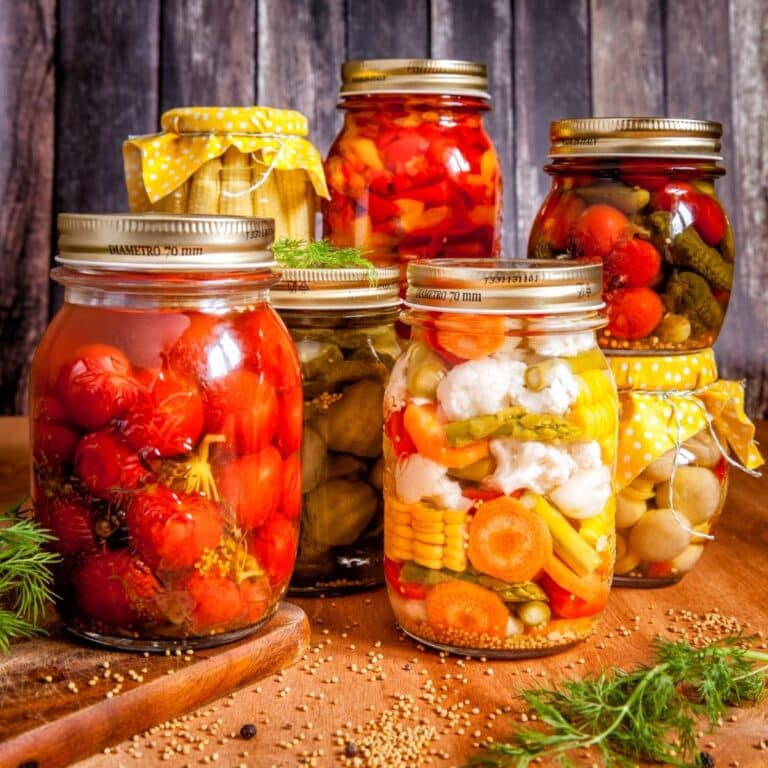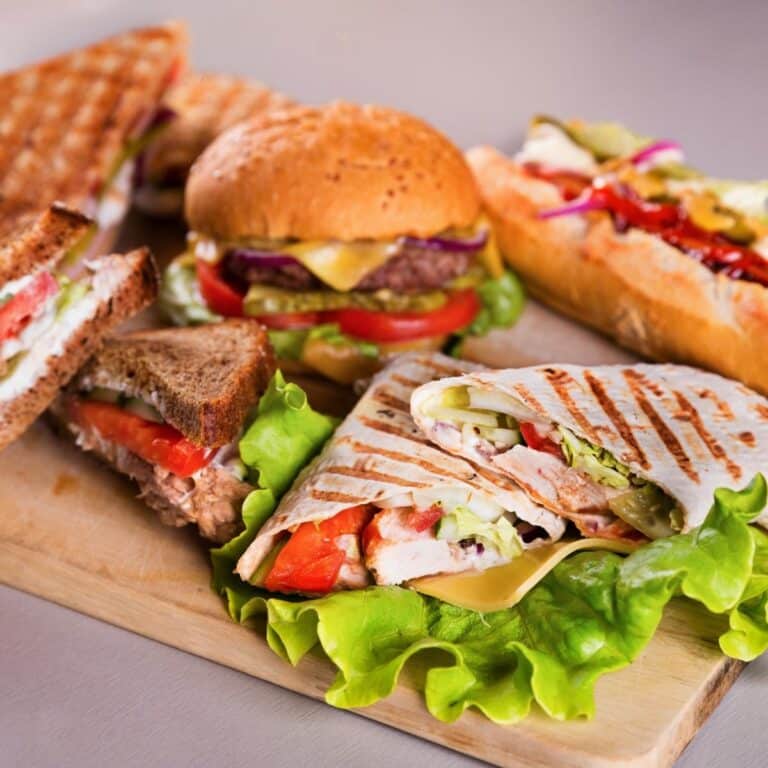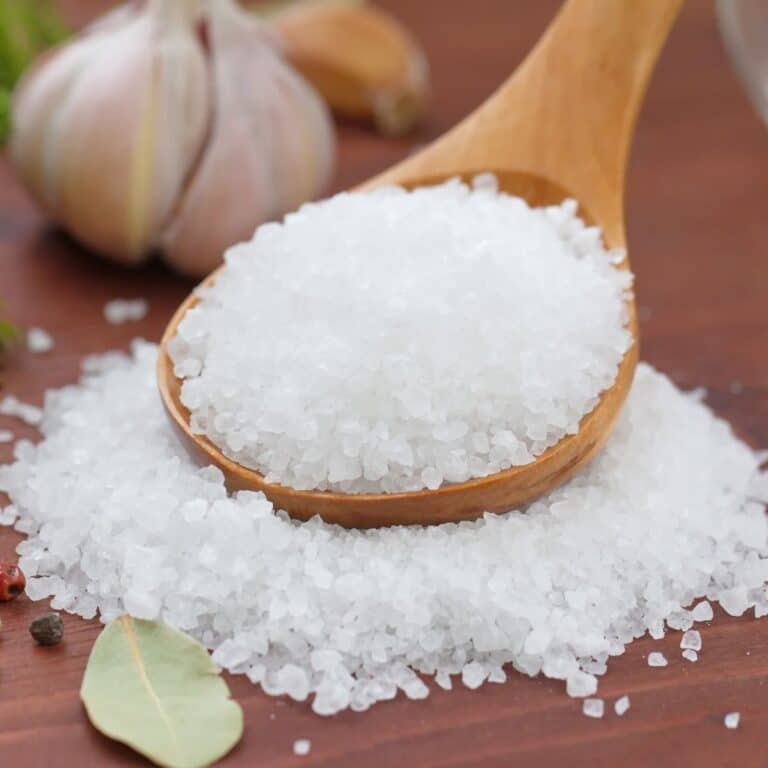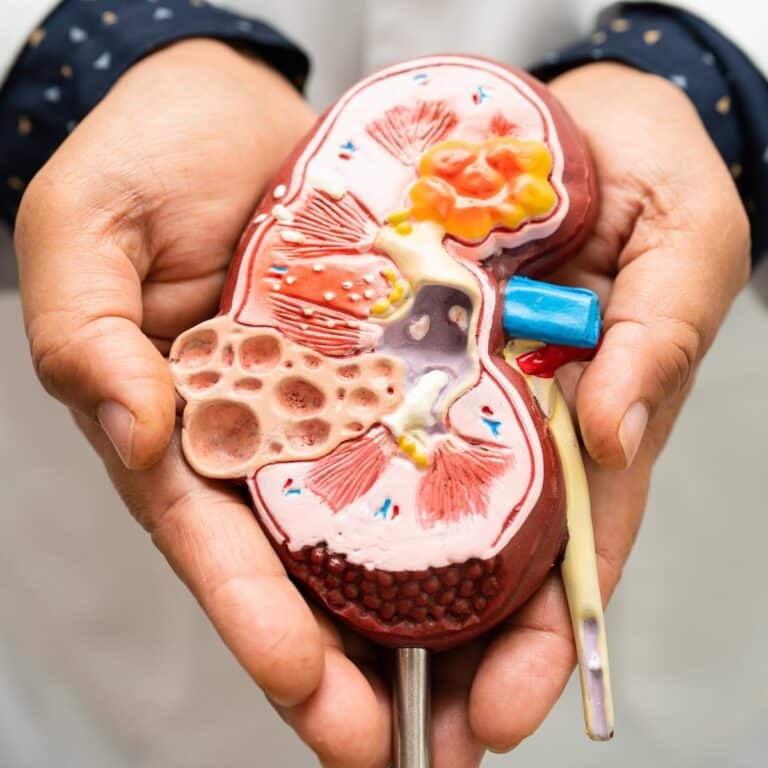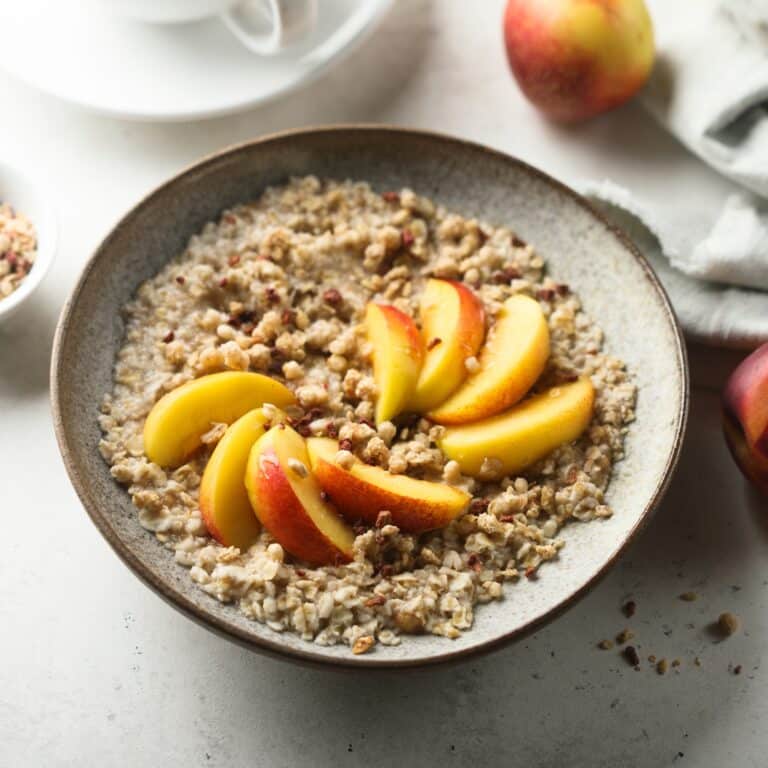Improving Kidney Function With Diet
It's no secret that diet plays a major role in our overall health. But did you know it can also help improve your kidney function?
In this article, we'll discuss how making simple dietary changes can help you achieve optimal kidney health and take the steps to improving kidney health.
Kidney disease is a growing problem in today's society, with an estimated 15% of American adults in the suffering from some form of chronic kidney disease (CKD) according to the American Kidney Fund.
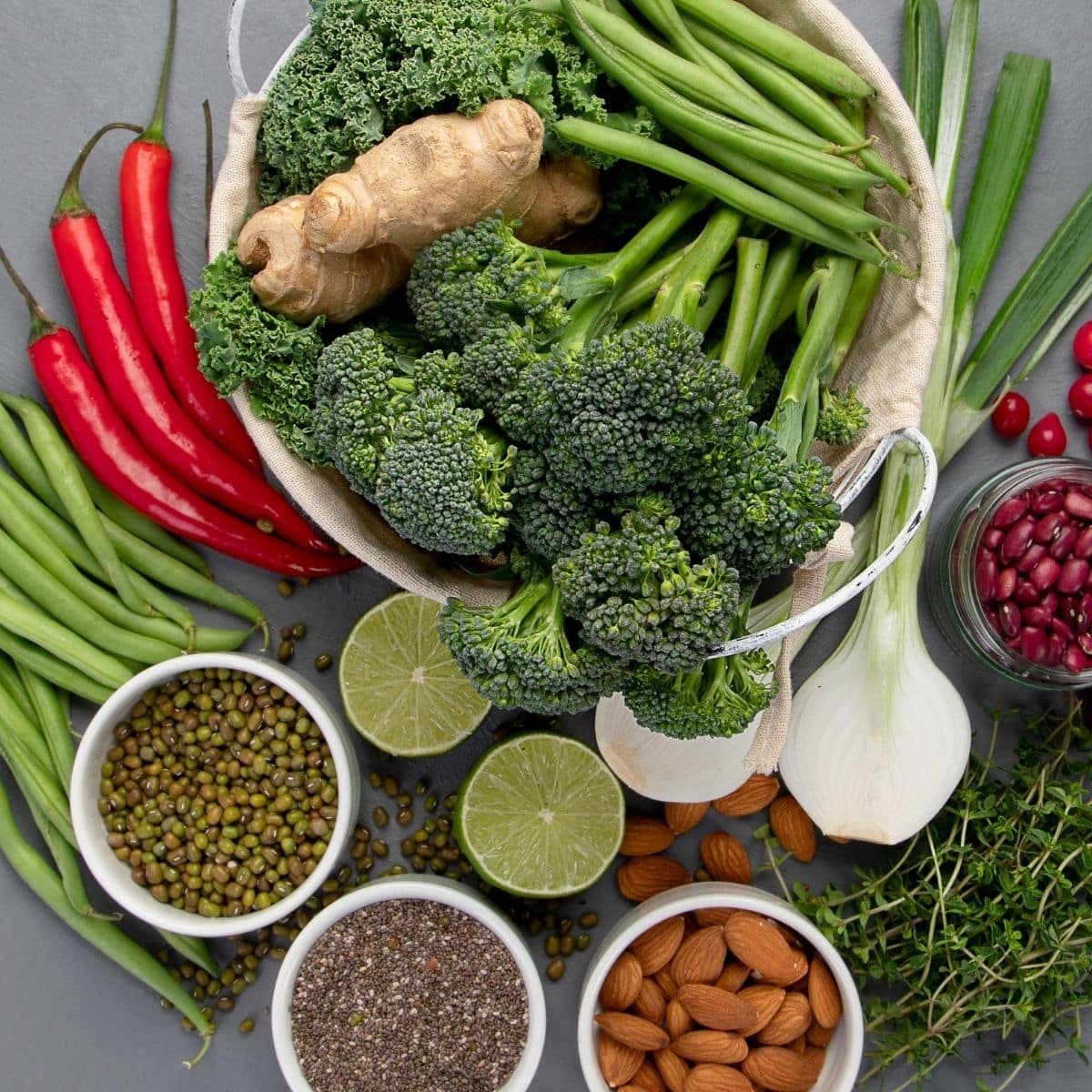
Fortunately, there are steps you can take to reduce your risk for developing kidney problems and even improve existing conditions through proper nutrition.
By understanding which foods are beneficial for supporting healthy kidneys -- and which ones should be avoided -- you may be able to help your organs function better and improve your overall wellbeing.
Jump to:
- Understanding The Basics Of Kidney Function
- Eating A Balanced Diet
- Increasing Fiber Intake
- Reducing Sodium Intake
- Limiting Processed Meats And Red Meat
- Choosing Low-Potassium Foods
- Avoiding Certain Herbs And Supplements
- Making Lifestyle Changes
- FAQs for a Renal Diet Menu
- Improving Your Diet Can Also Improve Your Quality Of Life
Understanding The Basics Of Kidney Function
The kidneys are essential organs that play an important role in keeping the body functioning properly. Without healthy kidneys, toxins and other waste products can build up in the bloodstream leading to serious health problems such as chronic kidney disease. This is also a good time to make smart goals for chronic kidney disease.
Aside from filtering the blood, the kidneys also help regulate blood pressure, ensure normal electrolyte balance, calcium metabolism, and blood cell production.
In chronic kidney disease, there is gradual but irreversible decline in kidney function which can eventually lead to kidney failure. For people with kidney diseases, all these functions can be affected which can lead to accumulation of toxic substances (uremia), high blood pressure, electrolyte imbalances, bone disease, and anemia.
Fortunately, there are several lifestyle choices you can make to help improve your kidney function and maintain good overall health.
Having adequate fluid intake is one of the most effective ways to support optimal kidney function. Water helps flush out any toxic substances or excess fluids from the system, improving blood circulation and reducing strain on the kidneys.
Avoiding alcohol consumption is also important for maintaining healthy kidney function as it Is a diuretic which can cause dehydration that may lead to kidney injury.
Managing stress levels, exercising regularly, and monitoring what you eat and drink can all help keep your kidneys functioning at their best. Stress hormones like cortisol put extra strain on the kidneys which could lead to injury if left unchecked.
Regular exercise increases oxygen flow throughout the body while eating a balanced diet full of nutrient-rich foods keeps your organs working efficiently. Taking these steps will go a long way towards promoting better overall health, including improved kidney function.
For More Recipes and Ideas --->> Get Your Free Meals and Recipes That Are Perfect for Pre-Dialysis Diets, Pre-Dialysis with Diabetes, or Dialysis Diets.
Eating A Balanced Diet
Eating a balanced diet can help improve kidney function. Eating for nutrients is key, as it ensures you're getting enough vitamins and minerals to support your health, including that of your kidneys.
Eating a balanced diet generally entails including macronutrients like carbohydrates, proteins, and fats from healthy sources, as well as micronutrients like vitamins and minerals.
Wondering if ground beef is good for kidney disease? Choosing lean proteins like egg whites (you can eat eggs on a renal diet), fish, poultry, and beans gives your body the building blocks it needs to support blood flow and prevent muscle breakdown.
Avoiding sugary drinks and limiting alcohol (learn about a renal diet and alcohol) intake is also a healthy choice for protecting your kidneys. Having enough fluid intake keeps your kidneys functioning optimally (juicing recipes to improve kidney function).
Eating more fruit provides fiber and antioxidants to support your overall health as well as kidney function. So make sure to fill up on nutrient-rich foods instead of empty calories like sugary foods! You can eat all kinds of fruits for CKD - discover what fruits are good for a renal diet.
Taking these simple steps can help you with steps to improving kidney health long term.
Increasing Fiber Intake
Fiber has many health benefits, so it's important to increase your intake. It can help lower cholesterol, improve digestion, and even maintain kidney function.
Eating more fiber can be done gradually and by adding more fruits, veggies, and whole grains to your diet. Increasing your fiber intake gradually is key to getting the most health benefits from it, especially with low carb low potassium foods for CKD.
Benefits Of Fiber
Fiber is an essential component of any healthy diet, and it has many benefits. Let's explore how increasing your dietary intake of fiber can help your kidneys stay healthy.
Fiber helps reduce the risk of developing chronic kidney disease by helping lower cholesterol levels and blood glucose levels. When these factors are kept in control, there is a lower risk of high blood pressure and diabetes, which are common causes of chronic kidney disease.
Eating foods with higher amounts of dietary fiber like vegetables, fruits and whole grains also reduces inflammation in the body helping reduce the rate of progression of kidney disease. And you can choose either fresh or canned vegetables for a renal diet.
Kidney-Friendly Fiber
For patients with kidney damage, it's important to choose sources of fiber that are also kidney-friendly. Fortunately, there are several options that can provide both fiber and nutritional benefits without putting excess strain on the diseased kidneys of patients with kidney damage.
One example is cauliflower, which is low in potassium and high in dietary fiber. It can be enjoyed roasted, steamed, or as a rice substitute. Another kidney-friendly high fiber food is bell peppers, which are rich in vitamins and antioxidants.
They can be added to salads, stir-fries, or stuffed with lean protein for a satisfying meal. Broccoli (broccoli good for kidney disease) is a great food for a renal diet as well, and can be used in many recipes.
Additionally, apples with the skin on are a great choice as they contain soluble fiber that helps regulate blood sugar levels. Other kidney-friendly high fiber options include cabbage, lettuce, strawberries, and green beans (green beans and kidney disease).
Incorporating these foods into the diet can promote healthy digestion and overall well-being for people with kidney disease. As always, it's important to consult with a healthcare provider or a registered renal dietitian for personalized dietary recommendations based on individual needs and specific kidney conditions.
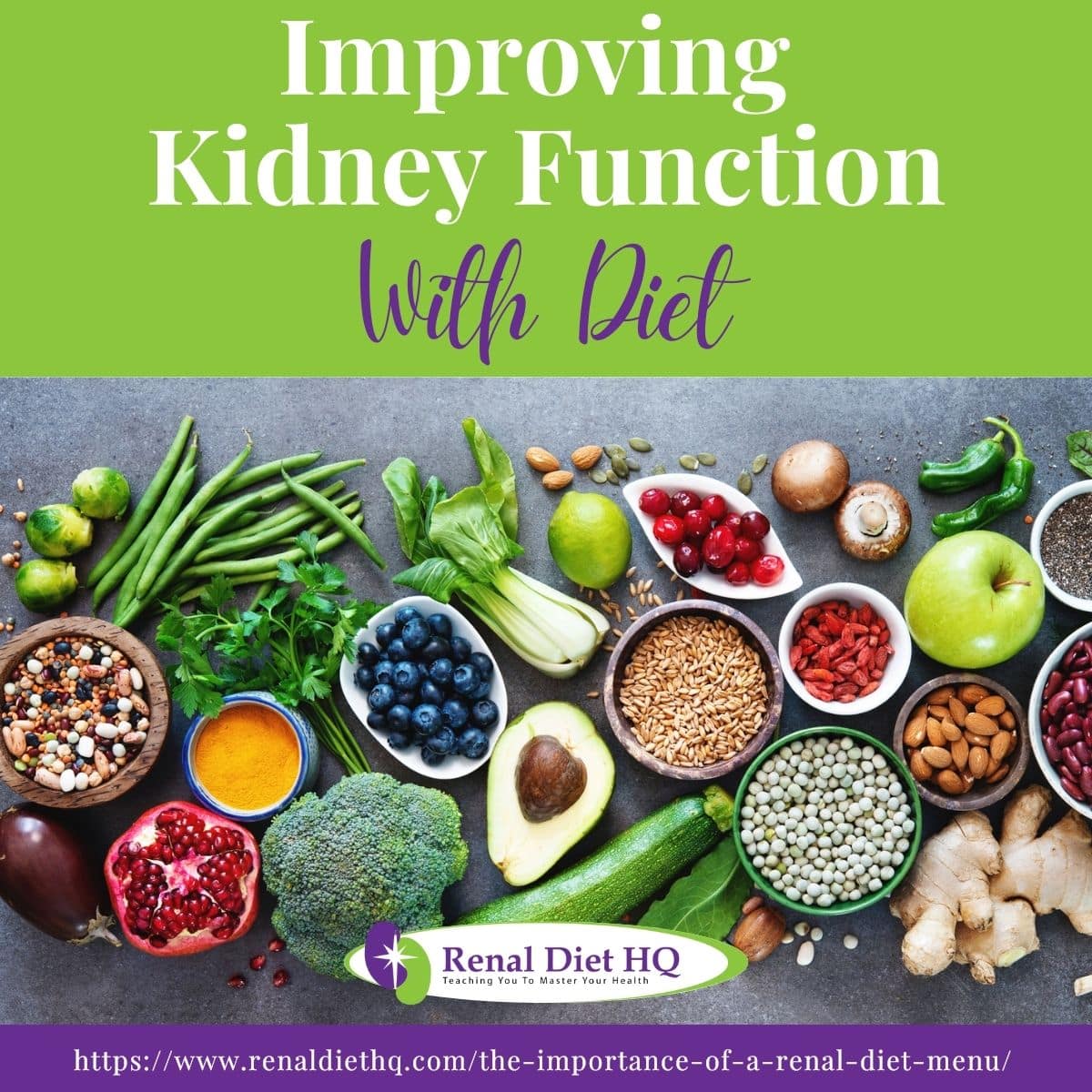
Reducing Sodium Intake
Reducing dietary intake of sodium is an essential step in protecting the kidneys. A high salt diet is associated with hypertension, which increases the risk of kidney disease. Choosing a low sodium breakfast is a perfect way to start your day!
Aside from cutting down on processed high sodium food items, we should also monitor our sodium intake to ensure we're not going over what's recommended.
It's not always obvious how much sodium is in the food we're eating, so it's a good idea to check labels and research recipes. We should also be aware of hidden sources of sodium, such as sauces and condiments for kidney disease.
Let’s look at how we can effectively reduce our sodium consumption.
Moderating Sodium Intake
When it comes to eating a kidney-friendly eating plan, moderating your sodium intake is important for overall health. Tracking the salt you eat can help you stay mindful of how much sodium you’re consuming each day.
Avoiding added table salt and using herbs and spices instead when cooking are great ways to keep your dishes flavorful without all that extra sodium. Flavorful herbs and spices can also serve as salt substitutes that can give flair to your dishes with no added salt.
Exploring substitutes like unsalted butter, low-sodium broth, and fresh produce can make meals healthier without sacrificing taste.
And don’t forget to read food labels when following a low sodium kidney diet! If a product has more than 140 mg of sodium per serving size, then it should be used in moderation or avoided altogether.
If you want to slow progression of kidney disease to end stage kidney disease and prevent uncomfortable symptoms, it is best to keep your intake at less than 2000 milligrams of sodium per day.
Reduce Processed Foods
High sodium processed foods should be avoided or limited in order to maintain a healthy healthy eating plan. These foods often contribute to excessive sodium intake, which can lead to high blood pressure, cardiovascular disease, and other health problems. Some examples of high sodium processed foods include:
- Canned soups and broths: These convenience foods are often loaded with sodium to enhance flavor and preserve shelf life. Opt for low-sodium canned foods for CKD or homemade alternatives - like this low sodium vegetable broth recipe.
- Processed meats: Deli meats, bacon, sausage, and canned meats tend to be high in sodium. Look for low-sodium or sodium-reduced options, or choose fresh, unprocessed meats.
- Frozen meals: Many frozen dinners and ready-to-eat meals are high in sodium as a means of preserving taste and texture. Select low-sodium options or prepare homemade meals using fresh ingredients.
- Condiments and sauces: Condiments like ketchup, soy sauce, salad dressings, and barbecue sauce can be sources of hidden sodium. Read labels and choose low-sodium versions or make your own sauces using herbs and spices.
- Snack foods: Potato chips, pretzels, crackers, and salted nuts are often high in sodium. Look for low-sodium or unsalted versions, or opt for healthier snack options like fresh fruits or unsalted nuts. Try out these yummy summer foods to snack on with kidney disease.
- Fast food and takeout: Burgers, fries, pizza, and other fast food options are notorious for their high sodium content. Limit consumption or choose healthier alternatives when eating out. Check out this book on eating out with kidney disease for more information.
- Processed cheeses: Cheese spreads, processed cheese slices, and cheese-based snacks tend to have high sodium levels. Opt for natural, lower-sodium cheeses and consume them in moderation.
By being mindful of these high sodium processed foods and opting for lower-sodium alternatives or preparing fresh meals at home, you can help reduce your sodium intake and support better overall health.
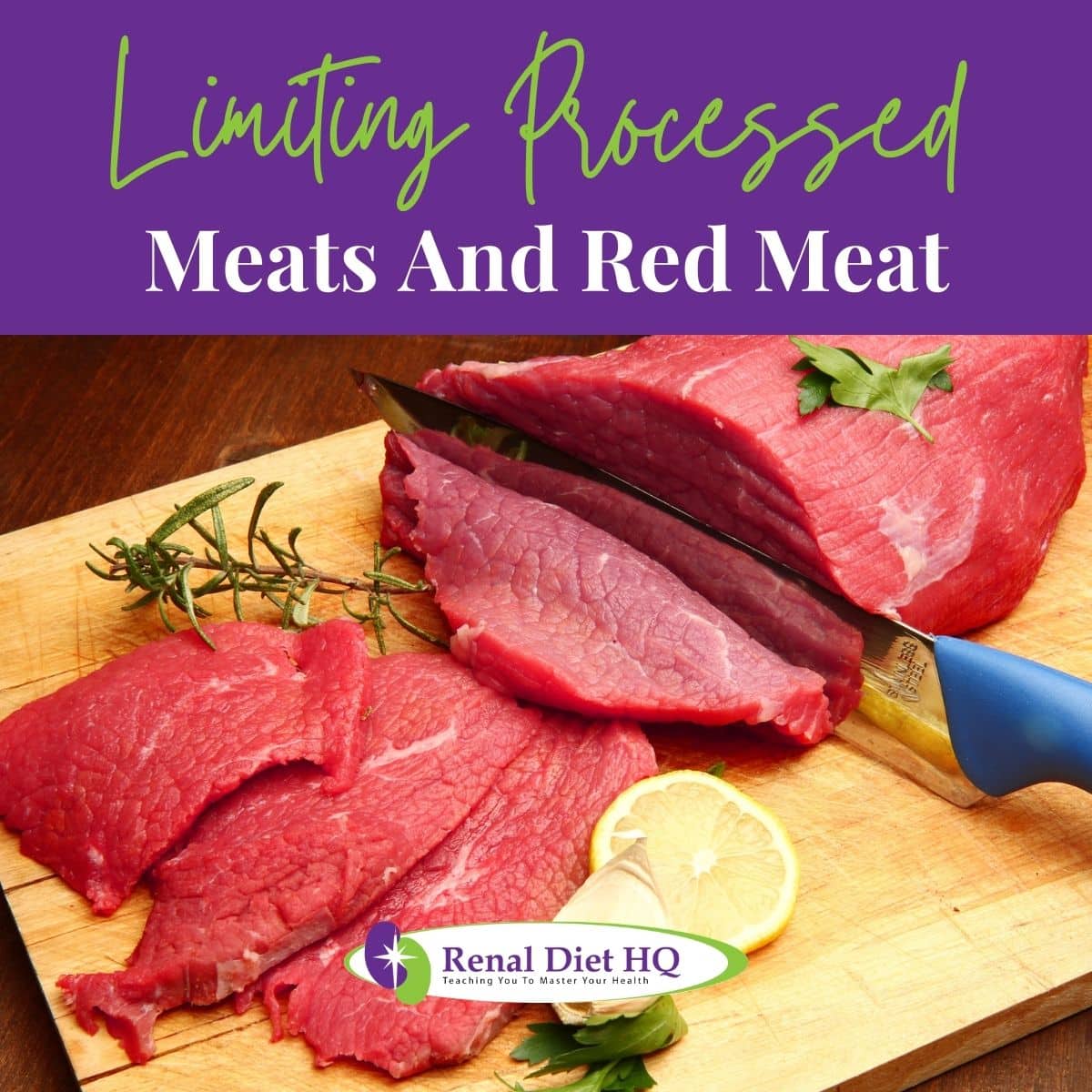
Limiting Processed Meats And Red Meat
Processed meats are higher in sodium, preservatives and nitrates, which can be detrimental to our health. So, limiting processed meats and red meat can be a great step for you towards improving your kidney health. One of my favorite meals are these kidney friendly meatballs.
Types Of Processed Meats
There are many types of processed meats that many Americans consume on a daily basis. This includes bacon, sausage, deli meats, hot dogs, and hamburgers.
Processed meats are a staple in many American diets, but they can pose serious health risks. Cooking techniques such as frying these products may increase the risk of kidney damage due to their high fat content. But you should know that grilling can lower your blood pressure with the right foods.
When grocery shopping, it's important to read food labels for sodium, saturated fat, and cholesterol levels, which can be at unhealthy levels for many of these processed meat products.
Healthy substitutes such as fish or lean poultry should be chosen when possible. Portion sizes also play an important role - instead of buying large packages of processed meats, opt for smaller amounts that can be enjoyed in moderation.
Still curious about going to the grocery store? Check out this Comprehensive Healthy Renal Diet Grocery List Guide!
Health Benefits Of Reducing Red Meat Intake
By reducing our intake of red meat, we can see some great health benefits, like improved kidney function, lower cholesterol, and a decreased risk of heart disease.
While the risks of processed meats are clear, reducing your intake of red meat can also bring many health benefits. Eating more plant proteins and avoiding refined sugars, fried foods, and alcohol can help you stay healthier in the long run. Can you drink alcohol on dialysis? Yes but learn more before you do.
By taking these precautions and incorporating these healthy habits into your everyday routine, you'll be well on your way to a healthier lifestyle without sacrificing too much flavor or satisfaction.
Choosing Low-Potassium Foods
Monitoring your potassium levels is essential in managing chronic kidney disease. Depending on the stage of kidney disease, your kidneys may have limited capacity to remove excess potassium, which can lead to complications like abnormal heart rhythms or muscle cramps. You will need to follow a low potassium diet menu.
Let’s look at some low-potassium produce you can enjoy on a healthy renal diet and get some tips for a low potassium diet.
Low-Potassium Fruits
When it comes to selecting low-potassium fruits, there are several that provide essential nutrients without overloading on potassium. Citrus fruits such as oranges, grapefruits and limes contain some potassium while still providing vitamin C, fiber, and other beneficial antioxidants.
However, these fruits may have interactions with medications, so it's best to consume them in moderation. Grapefruit interaction with certain medications for kidney disease can be very important so use caution.
Fresh fruit snacks like sliced apples, pears, berries, and melons are also excellent options because they tend to have lower levels of potassium than many other types of fruit. Honeydew melon and kidney disease are a good compliment to eat on hot summery days.
To further reduce your intake of potassium, prioritize hydration strategies like drinking water or unsweetened tea throughout the day instead of relying on higher-potassium fruit juices, smoothies, or sports drinks.
Low-Potassium Vegetables
Now that we’ve discussed how to select low-potassium fruits, let’s move on to vegetables. Some general tips include looking for fresh produce and avoiding canned or frozen options whenever possible.
Additionally, you should prioritize non-starchy produce like green leafy vegetables and cruciferous veggies such as broccoli, cauliflower or Brussels sprouts over starchy items like potatoes or corn. Cruciferous vegetables are particularly beneficial because they contain natural compounds called glucosinolates which may reduce inflammation in the body.
Eating a variety of plant foods is key: Look for colorful varieties of lettuce, spinach and peppers; explore different types of squash, like winter squash or butternut squash; add some zing with garlic and ginger; enjoy crunchy celery sticks; top off salads with nuts and seeds for added texture. If you need to eat more vegetables, consider leaching vegetables!
Avoiding Certain Herbs And Supplements
Herbal products and supplements are often marketed for a variety of health indications as they are natural products. However, some of them may be harmful or toxic to the kidneys, so caution must be taken.
The following are some guidelines on what to avoid. However, this does not substitute proper medical advice, and you should always consult your health care provider if you have concerns regarding your medications or supplements (diet vs medication for CKD improvement).
Herbs To Avoid
It can be heartbreaking to discover that some of your favorite herbs and supplements are not helping improve kidney function, but actually could be doing more harm than good.
When it comes to improving kidney health, being mindful about what we put in our bodies is an essential part of the process. Therefore, if you want to get the best out of your kidney-friendly diet while avoiding certain harmful herbs and supplements, there are a few things to keep in mind.
Herbs like dandelion, juniper, green tea, and ginseng should be avoided. Other herbs that you should watch out for may be found here. These may cause kidney damage or interact with medications that you are already taking.
You can learn more about herbal medicine and it's use in CKD in my book called Caring for Renal Patients on Amazon.com.
For your safety, always consult with a health professional, such as your doctor, kidney dietitian, or pharmacist before adding herbal supplements on your meal plans.
Supplements To Avoid
Large amounts of vitamin supplements like vitamin A, E, and K can build up over time in the body and can cause toxicity. Moreover, heavy doses of vitamin C may not be beneficial for people with kidney disease.
Some individuals with kidney disease may require supplementation with calcium, iron, or vitamin D. However, the need for supplements is determined on an individual basis, depending on specific clinical factors such as your symptoms and laboratory results.
Hence, it is best to ask your doctor first regarding the need for supplementation.
Making Lifestyle Changes
Aside from dietary changes, other lifestyle modifications such as stress management and regular physical activity can do a lot for improving your overall health.
Managing Stress
Managing stress is crucial for individuals with chronic kidney disease to support overall well-being. Here are some strategies to help manage stress effectively:
- Practice relaxation techniques: Engage in deep breathing exercises, meditation, or yoga and ckd to promote relaxation and reduce stress levels.
- Stay physically active: Regular exercise releases endorphins, which can improve mood and reduce stress. Consult with a healthcare provider to determine appropriate activities based on your condition. Exercise for a healthy heart and healthy kidneys.
- Maintain a support network: Seek support from family, friends, or support groups to share your experiences and feelings. Having a support system can provide emotional relief and perspective.
- Prioritize self-care: Engage in activities that bring you joy and relaxation, such as reading, listening to music, taking walks in nature, or practicing hobbies. Take time for yourself to recharge and rejuvenate.
- Practice stress-reducing techniques: Engage in activities that help you unwind, such as taking warm baths, getting a massage, or engaging in mindfulness practices. Here are some mindful eating tips for a renal diet.
- Seek professional help: If stress becomes overwhelming, consider talking to a therapist or counselor who can provide guidance and support in managing stress.
Remember, managing stress is essential for individuals with CKD as it can positively impact overall health and quality of life. It is important to find strategies that work best for you and incorporate them into your daily routine.
Regular Exercise
Exercise is an important factor for our overall well being and can have a positive impact on kidney health as well. Regular exercise helps us to maintain emotional well being and improve stress management.
Incorporating physical activities such as walking or cycling into our daily routine will help to keep our bodies healthy while also boosting energy levels.
Exercise can be tailored to meet each individual's needs; it doesn't matter if you prefer low-impact or high-intensity exercises, the key is that you're moving your body!
Taking care of yourself through regular exercise not only has short term benefits like improved mental clarity but long-term ones too – helping reduce the risk of certain diseases such as heart disease, in addition to improving kidney functioning (heart healthy lifestyle changes for CKD).
So don’t forget to make time for yourself by getting active every day!
FAQs for a Renal Diet Menu
If you have healthy kidneys and you're looking to improve your kidney function through drinking patterns, then it's important to know how much water you should be consuming.
Generally speaking, it's recommended that adults drink 8-10 glasses of water per day for optimal health benefits.
However, for people with kidney problems, the amount of water may vary depending on your medical needs in order to prevent fluid buildup. Look out for more detailed information from your healthcare provider about specific water intake guidelines for you. Take the time to know what foods high in water impact you!
Exercise is the foundation for good health, and this couldn't be truer when it comes to improving kidney function. For optimal benefits, aim to exercise at least 150 minutes of moderate intensity physical activity per week.
That can be done for 30 minutes each day for 5 days in a week. Make sure to do exercise routines that you can tolerate depending on your comfort and mobility level. Understanding how exercise for ckd patients works is important.
Eating greens, avoiding salt, cutting sugar and limiting alcohol are all helpful steps. Greens contain many vitamins and minerals that can support healthy kidneys.
Limiting your sodium intake can reduce stress on the kidneys. Cutting down on sugar helps ward off diabetes-related complications in the kidneys while reducing alcohol consumption is beneficial for overall health.
Improving Your Diet Can Also Improve Your Quality Of Life
Making changes to one's diet and lifestyle can lead to improved well-being and daily vitality. With higher energy levels and healthier kidneys, individuals can experience the benefits of a healthy eating plan.
The remarkable long-term effects are evident as an overall improvement in health is felt. By prioritizing kidney care through diet, individuals reduce potential health risks and improve their quality of life in the long run. You'll be glad you made these kidney disease lifestyle changes.





